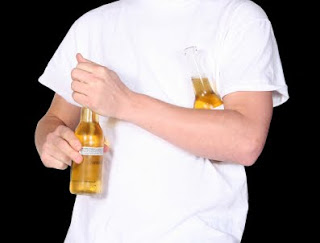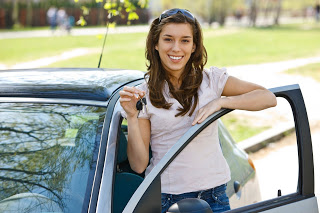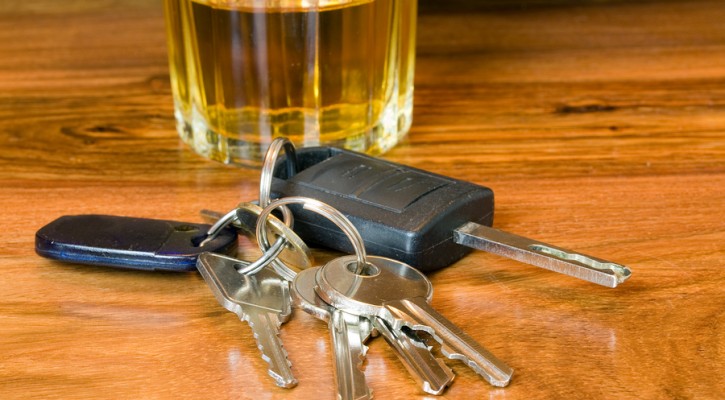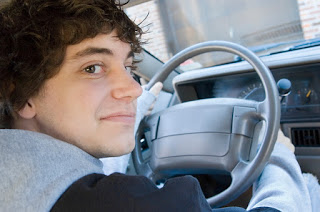Category Archive: Drunk Driving

Alcohol Access and Your Teen: Is Your Teen Mature Enough to Drink?
March 12, 2009
So your teen is having some friends over to “hang out.” Your teen wants you to provide a movie, snacks, and a six-pack of beer. Should you do it? Isn’t it safer to have your teen home with you so you can provide supervision? When you were young, the drinking age was 18, and you turned out fine. Isn’t it more important to teach your teen to be a responsible drinker than to abide by a law that features an arbitrary age limit?
Some parents do provide teens with alcohol, or simply look the other way when their teens drink, espousing a “kids will be kids” attitude. They think there is nothing they can do to stop the teen from drinking. They fear their teen’s reaction to a strict prohibition against drinking. They want to be their teen’s friend because they want to keep the lines of communication open.
Some parents think that if the teen only drinks alcohol in their own home, the parents will be in control of the amount consumed. They think they can keep watch over their teen to make sure that nothing bad happens while the teen is intoxicated. They reason that at least this way, their teen isn’t driving drunk or riding with another drunk teen. They rationalize that if they let the teen’s friends sleep over, everyone will be safe.
But these parents aren’t taking many facts into account that refute the notion that parents should allow underage children to drink:
- Teenagers are not physically, mentally or emotionally ready to be under the influence. Even one alcoholic drink is too much for their developing bodies and brains.
- For every year under the age of 21 a teenager begins drinking alcohol, they are five times more likely to battle a lifetime of alcohol abuse and dependence (National Institute on Drug Abuse, 2005)
- Adolescent use of alcohol increases the risk of dependence because teens’ brains are not fully developed. The prefrontal cortex, which we use to assess situations, help us use good judgment, and keep our emotions and desires under control, does not develop completely until we are in our early 20s (NIDA, 2007)
- Teenagers may look mature, but their bodies are still developing. They require a lower level of consumption of alcohol to obtain a rapid “high,” which means their judgment is affected almost immediately, but they also have increased levels of alcohol tolerance, making it easy for them to overindulge.
- Teenagers are emotionally immature. They are still learning about themselves, relationships, and what direction they should take in life. Because even a small amount of alcohol reduces inhibitions and impairs judgment, they may react emotionally while under the influence without considering the consequences of their behavior.
- The use of alcohol by teens increases the risk of activities that may result in serious long-term consequences, including:
- Use of other drugs (alcohol is a gateway drug because its use compromises judgment and reduces inhibitions)
- Driving under the influence
- Alcohol poisoning from binge drinking (teens often binge drink to relax and may participate in drinking games that result in ingestion of large quantities of alcohol in a short period of time)
- Increased sexual activity and multiple sexual partners due to lowered inhibitions, which increases the risk of pregnancy and/or sexually transmitted diseases
- Exacerbation of underlying, perhaps undiagnosed, mental illness
- Violence and rape (whether the victim is under the influence or not)
- Suicide
Parental accountability for social hosting is on the rise. Twenty-four states have enacted social hosting laws to hold adults criminally responsible for providing alcohol to minors. No state makes it legal for an adult to provide alcohol to other people’s children. Civil suits can result in the loss of many or all of a person’s assets – whether they knew alcohol was being served in the home or not. Turning a blind eye is not an excuse.
When you host a gathering for your teen, you must tighten your resolve. Avoid being a friend and focus on your role as the parent. The following tips will help you through the process:
- Set expectations with your teen ahead of time. Make sure your teen knows that you will not allow alcohol (or other drugs) at the party and that this is communicated to all guests. Ask your teen to tell you about any concerns she or he has about any of the guests or any situations that could occur. Make your neighbors aware of the party and enlist their help in monitoring the area.
- Make a guest list with your teen. Limit the number of teens so you can be sure of adequate chaperonage. Be sure you have contact information on each teen’s parent. Make sure guests and their parents understand that if a teen leaves the party, she or he won’t be allowed to return and parents will be called. Make sure parents who won’t be chaperoning know the start and end times of the party and will prearrange transportation.
- Limit guest access to certain areas of the house and property. Lock up all valuables, breakables, alcohol and weapons. Plan activities to occupy the guests. Provide plenty of snacks, soda and water. Set an example by not providing alcohol for any adults who are present. Regularly move through the party unannounced and as inconspicuously as possible, checking any off-limit areas. Collect all keys so you can keep track of who is arriving and leaving. Keep coats and purses in an area that can be monitored. Speak to each person before they leave; check for warning signs of impairment.
- If a guest arrives at the party already under the influence of alcohol or other drugs, keep them there while you call a parent to pick them up. If the guest leaves and someone is hurt or injured, you could be held responsible.

Alcohol Access and Your Teen – Trust but Verify
March 5, 2009
Your teenage daughter is spending the night at her friend Mary’s house. Mary’s mother seems to be a responsible, law-abiding adult. You’ve met her several times and there is no reason for you to think anything would go wrong. Mary’s dad is involved in charitable organizations. Still, you hesitate – but then think, why not?
The sleepover at Mary’s house seems perfectly innocent. Your daughter and her friend get good grades in school. They haven’t given you any real reason not to trust them. They are good kids. You’ve had the “choices equal consequences” talk with your daughter. And you have to trust your teen sometime, right? You have to let go.
You are trying to be reasonable.
For many parents, this is where the conflict begins. It’s difficult to decide when to hold back and when to let go. But you can’t let your guard down, because teenagers are vulnerable to temptation and peer pressure every day. What happens when…?
Mary’s parents are busy fulfilling their social and community obligations and aren’t paying attention to what your daughter and Mary are doing. They aren’t home, or they have friends visiting, or they are just weary from work, and their guard is down. Or perhaps they wear rose-colored glasses when it comes to Mary and believe that close supervision of the girls isn’t necessary because she would never betray their trust.
The teens head out to a party at John’s house. Maybe they said they were going to the movies, bowling, or just to hang out with John. John’s dad is a “cool” parent. He understands teenagers, likes to have people around and wants to know what goes on with his kids. John’s dad is an involved parent. He is teaching his son to be responsible. He wants John to drink in moderation and to be a responsible drinker. He reasons that John is going to drink alcohol anyway, so why not teach him how to do it responsibly?
So John’s dad buys beer for the party. Not too much, and he sets limits, cautioning John that each teen should have no more than two beers. He stays home to monitor the situation. Everything seems to be going just fine.
But John’s father didn’t consider the following:
- Early alcohol use, independent of other risk factors, strongly predicts the development of alcohol dependence.
- Of all people who ever meet the diagnostic criteria for alcohol dependence in their lifetime, nearly half do so by age 21 and two-thirds by age 25.
- People who reported starting to drink before the age of 15 were four times more likely to also report meeting the criteria for alcohol dependence at some point in their lives (National Institute on Alcohol Abuse and Alcoholism, 2009).
- Compared to youth who wait until they are 21, youth who drink before age 15 are 12 times more likely to be unintentionally injured while under the influence of alcohol, seven times more likely to be in a motor vehicle crash after drinking, and 10 times more likely to get in a physical fight after drinking (National Research Council and Institute of Medicine, 2004).
- Due to differences between the adult brain and the brain of the maturing adolescent, many young drinkers:
- Are able to consume much larger amounts of alcohol than adults before experiencing the negative consequences of drinking, such as drowsiness, lack of coordination, and withdrawal/hangover effects.
- Are particularly sensitive to the positive effects of drinking, such as feeling more at ease in social situations; young people may drink more than adults because of these positive social experiences (NIAAA, 2009).
- Recent evidence suggests adolescent drinking can inflict permanent damage on the developing brain (National Research Council and Institute of Medicine, 2004).These statistics do not take into account the risk that John’s dad is taking; in many states, he can be held criminally liable for providing alcohol to minors on property he owns, leases, or otherwise controls. Civil liability is always an issue; no state makes it legal for an adult to serve alcohol to someone else’s children. But if you aren’t vigilant, a tragedy could occur before you are even aware of the danger your child faces.Strengthen your resolve. Be your teen’s parent, not a friend. Make sure your teen understands that other adults can’t give them permission to drink alcohol. You’ve already said no, and no one else’s parent can overrule you.
Talk to, and listen to, your teen. Maintain an ongoing, open dialogue about underage drinking and the risks involved. Create a code word so that if your teen needs to be picked up early, you’ll do so with no questions asked until the following day, when you are both calm enough to discuss the situation sensibly. Let your teen know that you will not approve any outing without sufficient notice so you can speak to the hosting parent first.
When your teen spends the night at a friend’s house or goes to a party, call the hosting parent to find out the details. Volunteer to chaperone and provide transportation. Make sure the hosting parent shares your concerns about the availability of alcohol and that none will be permitted. Ask how much supervision will be provided.
Limit the amount of time your teen is away from home. Make sure you are awake and alert when the teen returns. Greet your teen with a kiss and a hug so you can observe your child’s physical, mental, and emotional condition.
It’s tempting for parents to relax their vigilance once their children become teenagers. After all, the teens will soon be on their own and beyond their parents’ control. But the teen years are a critical part of your children’s development, and the decisions they make could affect the rest of their lives. This is not the time to let down your guard.

Five Worst Teen Driving Mistakes: Part Two
December 19, 2008
Most parents live in dread of the day their teens get driver’s licenses and get behind the wheel on their own. Their concerns are well-founded, since teen drivers have the highest death rates in car crashes of any age group. Motor vehicle crashes are the number one cause of death among Americans aged 15-20. But parents can help their teens be a safer driver even after they are licensed, particularly by paying attention to common risk factors. In this five-part series, we’ll discuss the five worst teen driving mistakes:
- They don’t wear safety belts.
- They drink and drive.
- They panic/overcorrect in emergency situations.
- They drive too fast for conditions.
- They ride with other teens.
In this, part two of the series, we’ll discuss the risk teens take by driving after drinking alcohol. Teens are at far greater risk of death in an alcohol-related crash than the overall population, despite the fact they cannot legally purchase or publicly possess alcohol in any state. (National Highway Traffic Safety Administration)
Did you know?
- During 2006, 7,643 15- to 20-year-old drivers and motorcycle operators were involved in fatal traffic crashes across the nation, 1,377 (18 percent) of whom had a blood alcohol concentration (BAC) of .08 or higher.
- Nationally, 64 percent of all drivers or motorcycle operators ages 15 to 20 who were involved in fatal traffic crashes and had a BAC of .08 or higher died as a result of the crash.
- Violators of underage drinking laws often face a trip to jail, the loss of their driver’s license, and dozens of other unanticipated expenses including attorney fees, court costs, and other fines. Plus, there is the added embarrassment, humiliation, and potential loss and consequence related to academic eligibility, college acceptance, scholarship awards, and more.
- Most of those killed in alcohol-related crashes involving teen drivers are the young drivers themselves and their passengers.
All states now enforce a minimum drinking age of 21. Nevertheless, alcohol related crashes are still a top safety problem. Make sure your teen understands:
- Alcohol is not actually digested; it’s processed. It’s absorbed directly through the lining of the stomach into the bloodstream. This is why the body feels the effect so quickly.
- Alcohol has its first and greatest effect on the parts of the brain that control judgment and reasoning, the most critical skills needed by drivers. Physical abilities become impaired soon after.
- As more alcohol enters the bloodstream, the area of the brain that controls muscular movements and body control begins to slow down. Even after the driver recognizes danger, the brain takes longer than normal to process the information and react to the danger. Messages the brain sends to different parts of the body might become confused.
- A driver affected by alcohol has a decreased ability to reason clearly and to make sound judgments. However, the driver may feel as though thinking and judging abilities are sharper and quicker than usual.
- Alcohol quickly diminishes the ability to concentrate. A decrease in the ability to concentrate greatly increases a driver’s level of risk. A person’s driving ability can be reduced after only one drink.
- The muscular reactions of a driver who has been drinking can become slow and clumsy. Steering and braking movements can become uncoordinated. The driver might over-steer, brake late or not brake at all. The driver might not be able to negotiate turns properly and safely. Such actions cause drinking drivers to be involved in serious crashes.
Make sure your teen knows that she or he can always call you for a ride, whether the teen is intoxicated or is faced with the prospect of riding with a driver who has been drinking. Make a pact in which you promise to pick up your teen without questions or lectures. You can have a discussion about the issue the following day, when you are calmer and your teen is safe at home.
A Few Good Teen Driving Resources
January 9, 2007
Studies have shown that parents have a lot of influence over their teens driving decisions, which has put a lot of responsibility back on them for keeping teens safe on the road. Thankfully, there are many resources available to help parents who may need some additional instruction on how properly to coach their new teen driver. Parents themselves often engage in some risky driving behavior, and a recent Liberty Mutual report showed that teen drivers mimic their parent’s behavior. Perhaps parents need to pay close attention to the available safety resources as well.
Liberty Mutual and RADD, or “The Entertainment Industry’s Voice for Road Safety,” formerly known as Recording Artists Actors & Athletes Against Drunk Driving, have teamed up to produce a teen driving safety kit available through Liberty Mutual offices. The package, “The Road Ahead: Stay Safe at the Wheel,” includes a video, family discussion guide, and safe driving pledge.
The video is quite an eye-opener. Candid interviews with teens, and their experiences with risky driving, and its consequences should make all teens realize we are not immune to these types of disasters. However, even the small portion of the video on the Liberty Mutual website showed teens admitting that, despite knowing the risks, they still feel that it won’t happen to them.
Also a part of the video is segments from RADD’s own video, “SMASHED: Toxic Tales of Teens & Alcohol.” The title enough is to scare you into driving straight. A documentary created by HBO Family, “SMASHED” is filmed at the University of Maryland’s Shock Trauma Center, following real case studies of teens in severe auto accidents relating to drugs or alcohol. The documentary follows their progress and makes a very strong statement about the reality of drinking and driving.
“The Road Ahead” by Liberty Mutual can be requested by calling 1-800-4-LIBERTY, and other teen driving resources are available on their website. “SMASHED” is available on RADD’s website, where you can also find valuable information about the entertainment’s industry help in this cause.

Parents Really Can Influence Their Teen’s Driving Behavior
December 11, 2006
Did you know one if five tens drink and drive, or that one in eight admit to smoking pot and driving? Considering that auto accidents are the number one cause of teenage death, it really shouldn’t come as a surprise that teens are indeed engaging in risky behavior while driving, but the actual numbers shocking.
These are two small statistics released by a recent study by Liberty Mutual and SADD, or Students Against Destructive Decisions. The seventh annual Teens Today study shows that while teens are engaging in behavior that leaves them at risk for fatal accidents, parents have the ability to greatly reduce the occurrence of these behaviors in their teens.
According to the study, teens report that they are less likely to drive under the influence of drugs or alcohol if they have parents who set driving expectations and give clear consequences for breaking those rules that are set. Liberty Mutual president, Paul Condrin, points out that “… parents need to know the laws and teen-driving rules of their state, set clear expectations with their teens… and establish and enforce those consequences should those laws be broken or expectations not met.”
It’s good news that the role of parents in their teen’s life, and driving activities, play a large role in whether they make destructive choices that may endanger their lives and the lives of others. Reducing fatal car accidents among teenagers – the number one cause of teenage death – is the primary goal of reducing risky behavior such as drinking and driving, talking on the phone or eating while driving, and having multiple passengers that can be distracting to the driver.
What can a parent do? Some tips offered by Liberty Mutual and SADD include knowing the laws in your state; educating your teen about driving, preferably before they reach the legal driving age; continue monitoring your teen after their receive their license; and set clear rules and enforce them. Teens whose parents establish clear consequences are shown to be less likely to speed, drive with three or more passengers in a car, or talk on a cell phone while driving.
The chairman and CEO of SADD, Stephen Wallace, said it best: “Perhaps most important is to set a good example for young drivers and to reinforce their good driving habits by praising what they are doing right behind the wheel.”
